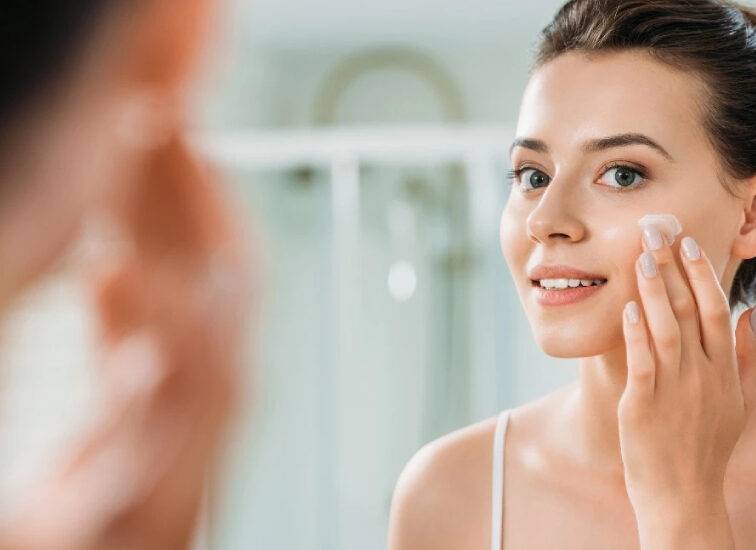Dark spots and hyperpigmentation can be annoying problems for many people. It’s not just a cosmetic issue, but one that affects your self-confidence and can have a negative impact on your overall health and well-being. Fortunately, dark spot correctors can help to reduce the appearance of these dark spots and restore your skin’s natural vibrancy. But with so many products on the market, it can be difficult to know which one is right for you. This article will provide an overview of what to look for in a dark spot corrector for your face.
What Ingredients To Look For In A Dark Spot Corrector For Your Face?
The key to finding the right dark spot corrector is to look for ingredients that are proven to be effective in reducing the appearance of dark spot corrector for face. Some of the most popular ingredients are hydroquinone, kojic acid, niacinamide, and azelaic acid. Hydroquinone is the most commonly used ingredient, as it has been shown to be effective in reducing the appearance of dark spots. Kojic acid is also a popular ingredient, as it helps to lighten the skin and inhibit the production of melanin, which is the pigment responsible for dark spots. Niacinamide is a form of vitamin B3 that helps to even out skin tone and reduce the appearance of dark spots. Finally, azelaic acid helps to inhibit the production of melanin and can be used as an alternative to hydroquinone.

How To Choose The Best Dark Spot Corrector For Your Skin Type?
It is important to select a dark spot corrector that is suitable for your skin type. For example, those with oily skin should look for a product with oil-free ingredients, such as salicylic acid or glycolic acid. Those with dry skin should look for hydrating ingredients, such as hyaluronic acid or squalane. For those with sensitive skin, it is important to choose a product with gentle ingredients, such as aloe vera or chamomile.
Why Are Dark Spot Correctors Vital For Skin Health?
Dark spot correctors are an important part of any skincare routine as they help to reduce the appearance of dark spots and restore your skin’s natural vibrancy. Dark spots are caused by an excess of melanin, the pigment responsible for skin color. It helps to reduce the production of melanin, thus reducing the appearance of dark spots. Additionally, dark spot correctors can help to even out skin tone, making your complexion look more even and vibrant.
Tips For Identifying The Most Effective Dark Spot Corrector
When selecting a dark spot corrector, it is important to look for products that are specifically designed to treat dark spots. Additionally, it is important to read the reviews and look for products with proven results. Finally, it is important to look for products that are formulated with ingredients that are proven to be effective in reducing the appearance of dark spots, such as hydroquinone, kojic acid, niacinamide, and azelaic acid.
Different Types Of Dark Spot Correctors And Their Benefits
Dark spot correctors come in a variety of forms, such as serums, creams, lotions, and gels. Serums are typically light and fast-absorbing and are great for those with oily or combination skin. Creams are thicker and ideal for those with dry or sensitive skin. Lotions are also great for those with dry or sensitive skin, as they are lightweight and non-greasy. Gels are great for those with oily skin, as they are lightweight and fast-absorbing.
Do Dark Spot Correctors Really Work?
Dark spot correctors can be effective in reducing the appearance of dark spots. However, it is important to remember that results may vary and that it may take several weeks before you notice any improvement. Additionally, it is important to use the product as directed and to be consistent with your applications.
How To Apply Dark Spot Correctors For Maximum Results?
It is important to apply dark spot correctors as directed. Generally, applying the product to the affected areas in the morning and evening after cleansing the skin is best. Additionally, it is important to use sunscreen to protect your skin from the sun’s harmful UV rays, as this can help to prevent further darkening of the skin.
Should I Use A Dark Spot Corrector With Sunscreen?
Yes, it is important to use a dark spot corrector with sunscreen. Sunscreen helps to protect your skin from the sun’s harmful UV rays, which can cause further darkening of the skin. Additionally, sunscreen helps to prevent the breakdown of dark spot correctors, thus allowing them to be more effective.
You may notice results within a few weeks of using a dark spot corrector. However, it is important to remember that results may vary and that it may take several weeks before you notice any improvement. Additionally, it is important to use the product as directed and to be consistent with your applications.
Conclusion
Dark spots and hyperpigmentation can be a frustrating issues, but with the right shady spot corrector, you can reduce the appearance of dark spots, even out your skin tone, and restore your skin’s natural vibrancy. When selecting a dark spot corrector, it is important to look for ingredients that are proven to be effective, such as hydroquinone, kojic acid, niacinamide, and azelaic acid. It is also essential to select a product that is suitable for your skin type and to use the product as directed. Additionally, it is essential to use sunscreen to protect your skin from the sun’s harmful UV rays. With the right dark spot corrector, you can reduce the appearance of dark spots and restore your skin’s natural vibrancy.

Francis Burns is an avid writer from Louisiana. With a Bachelor’s in English and a background in journalism, Francis has been writing for a variety of media outlets for the last five years. He specializes in stories about the local culture and loves to fill his work with inspiring words. When not writing, Francis enjoys exploring the outdoors of Louisiana and photographing nature.




